The VERY Best Supplements For a Child’s Anxiety
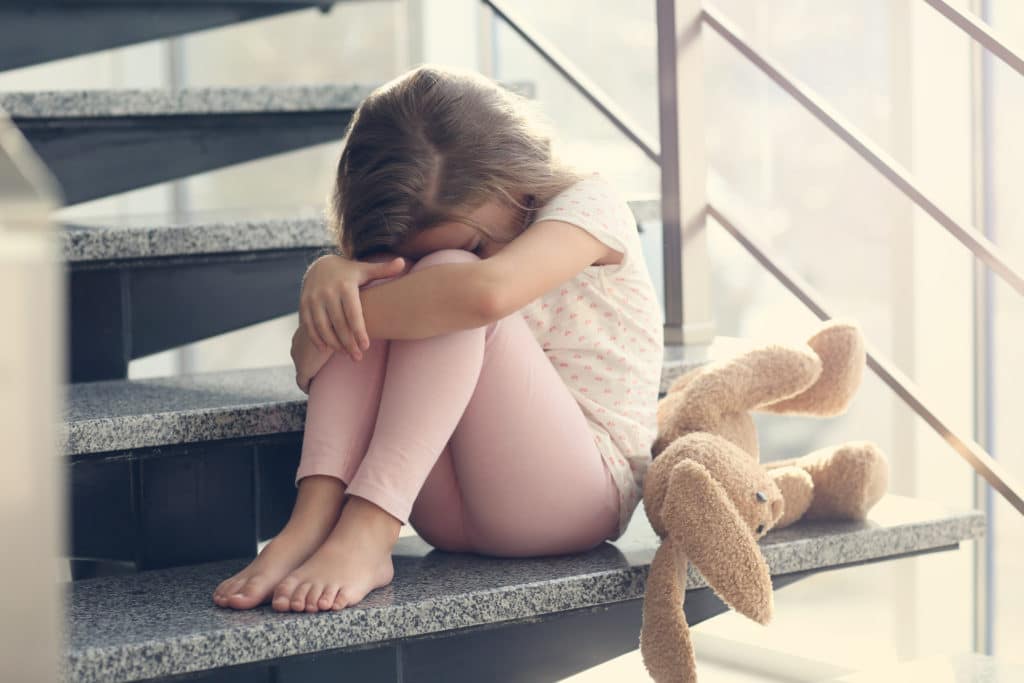
A child’s anxiety is a common condition that affects most children. This condition may present as fear or worry. It could also make your child irritable and angry. Most times, children with anxiety often have difficulty in sleeping, fatigue, headaches, and stomachaches. This article will teach you some supplements for a child’s anxiety.
Children can have anxiety and stress, causing them to feel overwhelmed and
If your kids suffer from anxiety, you can use supplements or other natural approaches to treat the condition.
When a child throws a “temper tantrum” or a “fit,” the child is having a fight-or-flight response causing them anxiety. Thankfully, natural remedies and dietary supplements help reduce the chances of a child developing an anxiety disorder.
Table of Contents
Natural Ways to Treat a Child With Anxiety
#1. Yoga and Breathing Exercises
When kids suffer from anxiety, they experience specific body changes. And one of such changes is shortness of breath.
To help a child breathe more accessible and reduce their stress when they are feeling anxious, it is important to teach them how to breathe slowly and deeply.
However, with regular yoga and breathing exercises, you can teach your kids how to belly breath. Belly breathing is a yoga technique that helps to fill the lungs’ diaphragm with fresh air.
When anxious kids perform the belly breathing technique, they feel incredibly relaxed and calm. It normalizes the heart rate, blood pressure and calms every nerve in the body.
Other breathing exercises you can use to treat children with anxiety are;
- Take a deep breath and lengthen your exhaling
- Perform focus and slow, deep breathing
- Practice equal breathing with your kids. It involves inhaling for the same amount of time you are exhaling.
- Resonant breathing etc.
#2. Art Therapy
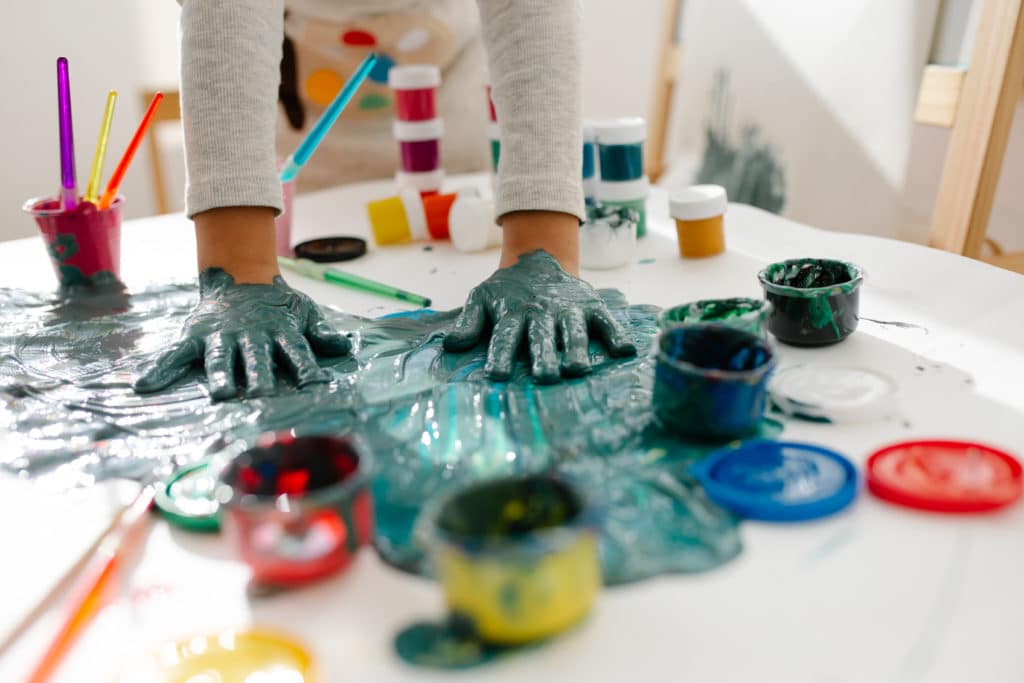
Aside from using supplements for child’s anxiety, you can also use art therapy. It’s a psychotherapy that involves the use of art for self-expression. The art could be drawing, painting, modeling, or any other activity to help your kids make their own relaxation.
If your kids can’t verbally express their feelings, they can use art to express themselves. If your child is undergoing art therapy, their therapists often help them interpret their paintings or drawings.
Art therapy is effective for treating children suffering from any of the following conditions;
- Mental Health issues: Art therapy would be helpful if your kid is suffering from mental health issues. That’s why some scientific studies suggest that art therapy effectively treats people with schizophrenia and other related conditions.
- Children with dementia
- Children with autistic spectrum.
- Kids that can’t express their feelings.
There are different types of art therapy: painting, collaging, photography, textiles, and digital art.
#3. Deep Pressure Therapy
Deep pressure therapy is one of the most effective ways to treat a child’s anxiety. It’s a form of tactile sensory input. It provides proprioceptive input to the body.
This therapy comes in different forms: hugging, firm stroking, cuddling, squeezing, compression, etc.
- -How to Learn relaxation techniques you can do anywhere.
- -Identify anxiety in yourself and others.
- -Learn how to better react to situations and set a firm foundation for dealing with stressful situations.
- Use Natural Supplements, Dietary, and Lifestyle changes to help you feel less anxious sooner.
- I am a Counselor in Training, so I share what I learn through my education and experience and the price will go up shortly--- However! You will get all of the free updates I make to the course at no additional charge to you! As I learn through research, my education, and personal experimentation of new supplement regimens I will share them with you!
Calming Vitamins and Nutrients for Kids
Sometimes, when some natural ways of treating a child’s anxiety aren’t yielding the expected result, you may have to opt for supplements. So, here are some of the best supplements for a child’s anxiety.
#1. Magnesium
- Specially formulated for children four years and older, nature’s remedy helps support moods and provides the essential nutrients to maintain healthy brain development.
Several studies suggested a relationship between magnesium deficiency and anxiety in children. Some of these studies further postulated that there’s improvement in kids with anxiety after taking magnesium supplements.
Again, some studies revealed that children’s constant fear and panic would reduce drastically with enough magnesium intake.
Consume Magnesium-rich foods like
- Rice
- Wheat
- Oats
- Avocado
- Dark Chocolate
- Legumes and nuts
However, these foods lose most of their magnesium content during processing. That’s why it’s better to use magnesium supplements for a child’s anxiety.
Additionally, you can give your child seeds like pumpkin, sunflower, flax, and sesame.
Other foods high in magnesium are; avocado, dark chocolate, legumes, and nuts.
If you are using magnesium supplements as an anxiety treatment for your child, you should consult a healthcare practitioner for the correct dose.
#2. Omega 3 Fatty Acids
- Each teaspoon of Kid's The Very Finest Fish Oil provides 800 mg of omega-3s, including EPA and DHA, which support heart, brain, vision, and joint health.
Omega 3 Fatty Acids are one of the most effective supplements for a child’s anxiety. Studies show that this supplement has excellent mental health benefits, including treating anxiety and Attention Deficit Hyperactivity Disorder (ADHD).
Several studies revealed that people who regularly take omega-three fatty acids are less prone to anxiety. Furthermore, kids suffering from the condition can experience improvement when they regularly use this supplement.
Generally, there are three types of Omega 3 fatty acids – ALA, EPA, and DHA. While the three are all effective, the EPA is more effective for treating anxiety and depression in children and adults.
#3. Vitamin B Complex
- Help your little one feel focused, calm and help support their energy too with a blend of B vitamins, minerals, and nutrients
- B Complex And More: Crafted with B vitamins like B6, B12, biotin, and folate plus L-Theanine, zinc, choline, inositol, lemon balm, and more
The Vitamin B complex is a group of nutrients that play an essential role in the body. Since these vitamins are found in a wide variety of food, you can quickly get the recommended amount of this vitamin.
However, certain factors could increase your body’s demand for vitamin B complex. And some of these factors are age, pregnancy, medical conditions, medication, dietary choices, alcohol use, etc.
Studies show that when the body lacks this vitamin, it could lead to several conditions, including anxiety.
But most studies that linked vitamin B deficiencies with anxiety didn’t focus on children. However, it’s relatively safe to include vitamin B in your child’s diet or supplement them to help treat anxiety symptoms.
Vitamin B Rich Foods
The following foods are rich in vitamin B complex and can help manage a child’s anxiety.
• Pork, berries, legumes, lean meats. Nuts, soy milk ( Vitamin B1)
• Eggs, dark green vegetables, fish, grains, lean meat, mushrooms ( B2)
• Sunflower seeds, tuna, poultry, potato, cottage cheese, liver (B3)
• Organ meats, avocados, broccoli, mushrooms ( B5)
• Green beans, whole grains, spinach, fish, bananas ( B6)
• Soy products, egg yolks, fish, organ meats, cheese, sweet potatoes ( B7)
• Green leafy vegetables, citrus juice, legumes, tofu, tomato juice ( B9)
• Milk, fish, fortified breakfast cereal, eggs, shellfish ( B12)
#4. Passion Flower
Passion Flower is one of the most popular supplements for a child’s anxiety. It’s effective for managing insomnia, anxiety, and conditions relating to Gastrointestinal setup.
The supplement seems safe for treating anxiety, but a few reported side effects exist. And no study currently supports the use of passionflower supplements for a child’s anxiety.
However, there has been little anecdotal evidence of passion flowers being effective for a child’s anxiety. And Dr. Weil, an integrative medical doctor and co-founder of the University of Arizona Center for Integrative Medicine, recommends using the tincture form of passionflower (using a non-alcohol tincture for children under four and using half the recommended adult dosage for children under 10.
Furthermore, some researchers revealed that passionflower could help to treat anxiety, insomnia, and chronic pains. That’s because the supplement helps to increase your Gamma-Aminobutyric Acid (GABA) level.
GABA is a brain chemical that helps to regulate mood. And if your child has a healthy level of GABA in their brain, they will be more relaxed and calm.
However, some of the side effects of passionflowers on your kids include; drowsiness, dizziness, and confusion. So, it’s advisable not to administer this supplement to your child during school days.
#5. Lavender, Lemon Balm, and Chamomile
According to studies, these three supplements effectively treat mild and moderate anxiety in children. They are amongst the most effective supplements for a child’s anxiety.
Experts opined that these herbs have calming properties that help calm and relax children with anxiety. Experts suggest that Cyracos (a lemon balm product) has anti-anxiety effects in adults.
Similarly, lavender, lemon balm, and chamomile are more suitable supplements for a child’s anxiety. You can add sweeteners like stevia or honey to the supplement for children over one year.
Again, you can use diluted essential oils on your child’s pillow at night for a calming effect.
#6. Valerian Root
Since the days of ancient Greece, valerian root has always been used as a medicinal supplement. It’s one of the best natural supplements for a child’s anxiety.
Valerian root contains valeric acid. When administered to your child orally, the valeric acid will convert to calming, “feel good” neurotransmitters. This helps to regulate stress and helps your kids to relax their bodies and minds.
Interestingly, the valerian root is available in capsule, tea, and liquid forms. It’s advisable to talk to your doctor for dosage advice.
#7. Licorice Root
Licorice root is a fantastic treatment option for a child’s anxiety. The root tastes good and is excellent for people with anxiety because it works on the adrenal glands when consumed.
The adrenal gland is responsible for producing stress, adrenaline, and cortisol. And when you consume licorice regulates the production of these hormones, strengthens the body’s defense against stress, and fights anxiety symptoms.
Natural Calming Supplements for Toddlers
Vitamins and minerals benefit everyone, but younger children have difficulty breaking down certain herbs. A natural alternative for younger children is homeopathic supplements.
Homeopathy combines low doses and consuming a very small dose of a homeopathic salt that causes similar symptoms to a condition that a person may have.
This homeopathic supplement is safe for newborns to 12-year-olds to help calm them, minimize nightmares, and relieve irritability.
What to Do If Your Child Has Anxiety
Before administering supplements for a child’s anxiety, you must know what to do when your child is anxious. And that’s what we will cover in this section.
Seeing your child suffering from anxiety and being unable to help is heartbreaking. It gives you a negative feeling that words can’t explain. Unfortunately, their fear of not allowing their kids to suffer from anxiety sometimes worsens it.
1. Take Things Slowly But Steadily
One mistake parents often make is trying to make their kids overcome anxiety by all means. It doesn’t work that way. If you continue to pressurize your child, the fears and panic will only exacerbate.
Helping your child feel more confident can help them reduce anxiety and allow them to believe in themselves. Having them do small chores or tasks and accomplish things can boost dopamine.
So, always remind yourself that the goal isn’t to eliminate anxiety. But to help your child manage it. With this mindset, you can use the right approach to help your child.
The first thing you should do is to identify the stressor that triggers your child’s anxiety. Once you identify the stressor, teach your child how to tolerate their anxiety and manage the stressors that trigger it.
2. Confront Things That Make your child Anxious
Sometimes, parents help their children avoid the things that scare them or make them panic. While this approach may work in the short term, it would reinforce the anxiety in the long run.
Regardless of how scared your child seems, never allow them to avoid things that make them fear and panic. Teach them how to confront their fears; within a short time, they will overcome their anxiety.
3. Express Positive but Realistic Expectations.
Learn to improve your child’s self-confidence. And don’t try to tell your child lies just to make them feel good. Because when they stop trusting you, that would be worse.
For instance, if your child fears failing his/her examination, not having fun ice skating, etc. You don’t have to give them false hope that their fears aren’t real. Instead, let them know that you have confidence in them and that they can overcome whatever fear they will face.
These words of affirmation will give your kids the validation they need to overcome their fears.
4. Respect Their Feelings, But Don’t Empower them.
One of the best ways to help your child manage anxiety is to respect their feelings. But you must not empower them to be stubborn.
For instance, if your child doesn’t want to go to school because they are performing poorly in Mathematics, don’t belittle their fears and don’t empower them.
Listen to them, hear their concerns, and encourage them to learn to face their fears.
5. Don’t Ask Leading Questions
If any of your kids suffer from anxiety, avoid asking them leading questions, it would only worsen things. They would feel pressure and don’t want to open up to you.
However, you can ask them close-ended questions like – how are you feeling about tomorrow’s math test? I hope you have read your book for the test. Are you going to school with your friends, etc.?
6. Teach What Emotions Feel Like
Teach your child what each emotion feels like and how they can best communicate them. You can use an emotions wheel to show them the different categories of emotions and ways to describe them.
Identifying an emotion can make it easier to understand why they feel that way.
7. Take Them to Therapy
You may not believe it, but there is therapy for children, and it’s often done in play therapy. This form of therapy allows a child to feel comfortable and to be able to communicate with the representation of what they are talking about. It also takes the edge off when they are nervous about talking to a stranger about something that has happened to them.
In Conclusion
You can assist your child in coping with their anxiety via supplementation, stress-reducing exercises, and helping them understand what anxiety is. Teaching relaxation techniques such as breathing techniques and healthy ways to deal with their anxiety will help them increase their emotional intelligence and make them great spouses, coworkers, parents, and friends.
References
https://www.healthline.com/health/childrens-health/ways-to-calm-child-anxiety#deep-pressure-therapy
https://www.therecoveryvillage.com/mental-health/anxiety/related/vitamins-for-anxiety
Originally posted 2021-04-28 15:39:41.
Megan Santiago
Latest posts by Megan Santiago (see all)
- How to Find a Trauma Therapist in Tampa - September 30, 2024
- 19 Important Facts That You Should Know About The Work From Home Jobs Industry - March 10, 2024
- Codependency Books: Getting the Love You Deeply Crave - March 10, 2024

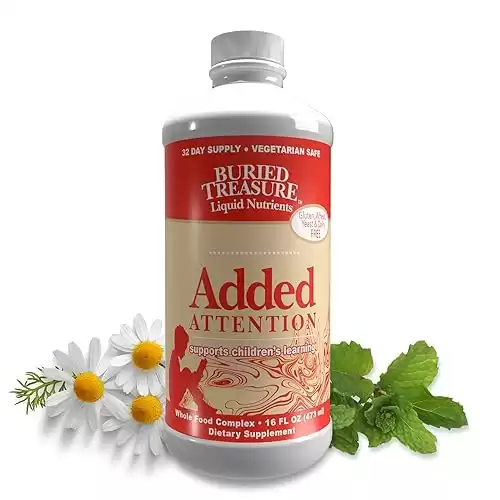
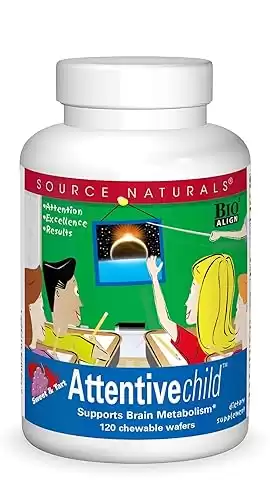

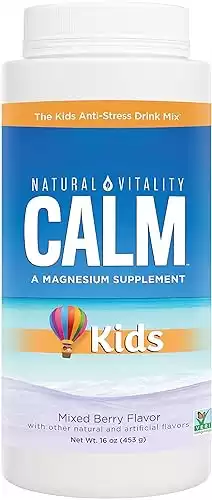
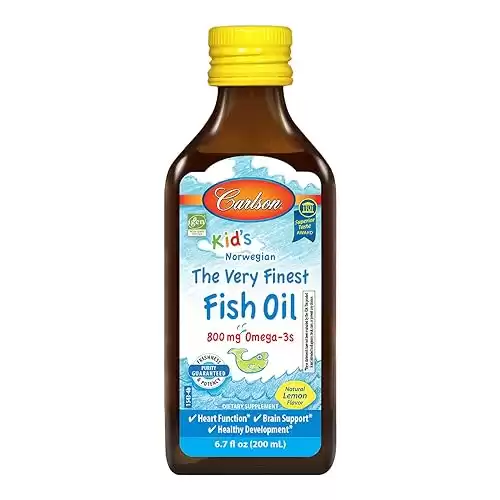
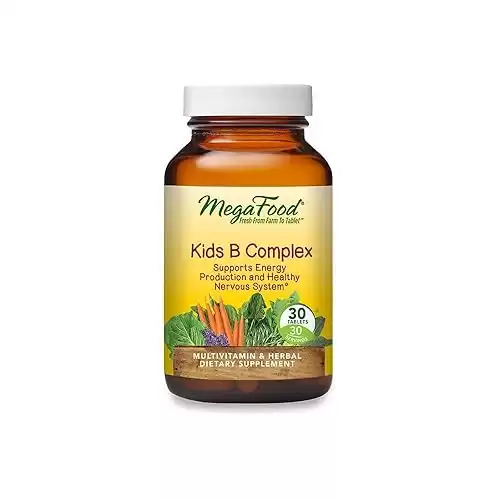
![Stress Management Activities for Women [That Actually Work!]](https://holistic-momma.com/wp-content/uploads/2020/05/5-768x1152.png)